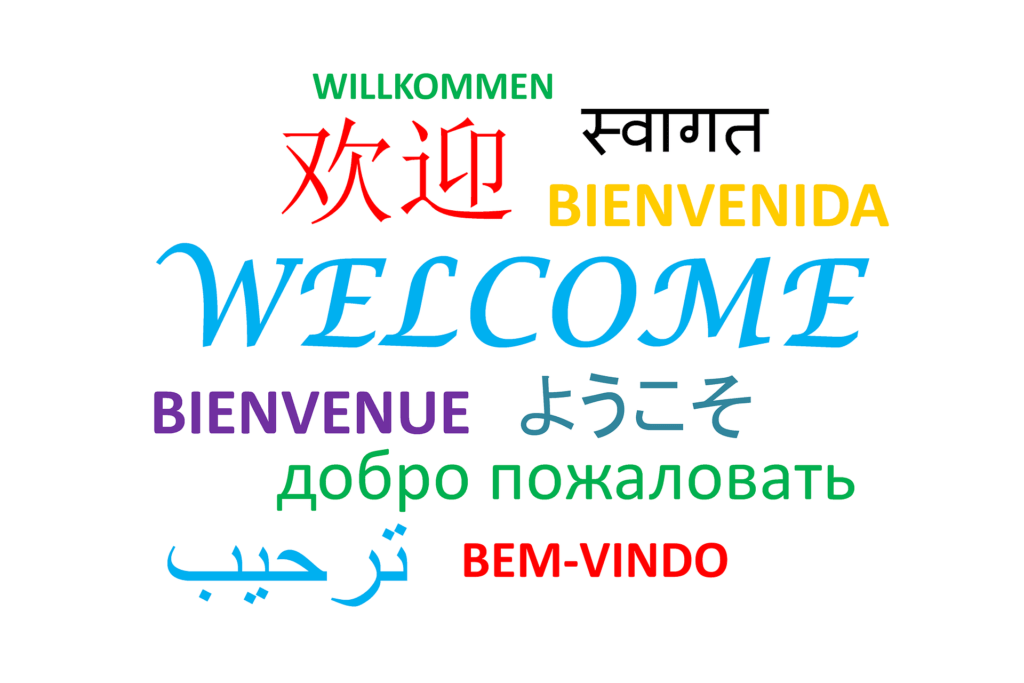Building a multilingual website is a demanding project that requires expert knowledge and a superb understanding of all languages involved in the process. However, the advantages of such design are gigantic because the English-speaking world is not where all things end online.
On the contrary, there are dozens of hugely influential languages to consider here. Chinese has more than 1.2 billion native speakers, followed by hundreds of millions of people who speak Spanish, Arabic, Hindu, Portuguese, and Russian—to name only the most significant language groups.
In such circumstances, it is not the question of whether you should launch a multilingual site but rather how to do it most effectively. In this post, however, we will show you nine reasons why a multi-language website can benefit your business. Let’s take a look.
1. Expand your reach
The first and by far the most important reason to go multilingual is straightforward—you can expand the reach and approach a much wider audience. After all, why stick to just one target group if you can address more consumers simultaneously?
The figures can vary greatly, but if you are currently targeting a million English-speaking prospects, why wouldn’t you double that number by crafting a multi-language website? Don’t forget that China has over 1.4 billion citizens who could potentially become your customers. The same goes for other countries such as Japan, Brazil, Russia, or Germany.
2. Improve SEO efforts
The success of an online business mostly depends on its ability to rank highly among industry-related websites. And as long as the multilingual website is set up properly, Google will rank it higher in search results. And we are not talking about Google or Bing only as these platforms don’t make such a huge influence in some countries. For instance, Baidu is the largest search engine in China, Yandex is dominating the Russian market, while Voila plays a significant role in France.
3. Prove to be customer-centric
Companies with multi-language websites prove to be customer-centric, thus improving the overall brand reputations and credibility among target audiences. It’s just a matter of human nature as we all love to feel acknowledged and appreciated.
If you provide users with quality content in their native language, rest assured they will respect you more and prefer your services over someone else’s. Of course, their way to return the favor is to spend more time on your website, consume more content, and ultimately spend more money buying your products or services.
4. Build trust
This benefit and reason to construct a multilingual website go hand in hand with the previous one. Showing respect and appreciation towards your audience, you are going to build a long-term trust between the brand and its followers.
And it’s not only a matter of respect since it’s entirely natural for customers to feel more comfortable reading articles or exploring products in their own language. That way, they are sure there won’t be any surprises, which increases the odds of conducting the purchase eventually.
5. Improve brand image
Do you know why Chinese companies often hire westerners to attend their meetings as companions? They do it in order to look more professional and credible in the eyes of their Chinese partners. Helen Mancini, a CMO at Best Dissertation, explains how this works: “It’s an image booster that you can also exploit while building a multi-language website. You can hardly miss the point here—multilingual sites prove that you are running a global business, which looks outstanding in the eyes of an average customer.”
6. Understand cultural peculiarities
The more you know about a specific market, the better you can approach it. When you design a multilingual site, you need to learn various details about local cultures and understand their peculiarities in order to make a compelling final product.
But that’s not the only benefit. Learning about foreign countries, you also gain valuable insights that can help you to adjust products or services for each market individually. For instance, you will see that different cultures interpret colors differently, which can inspire you to change the branding strategy for specific regions.
7. Outdo competitors
Your market is probably flooded with all sorts of companies that are trying to find their place in the sun. If you are also trying to make an impression on the target audience and outdo the biggest competitors, a multi-language website might just be the way to do it. Yes, it takes a lot of time and resources to build one, but why avoid it if it can lift your business head and shoulders above other companies?
8. Cost-effective marketing solutions
A website is an anchor of modern business. It’s a place where you can present the products and publish appealing content that inspires users to read more and spend extra time exploring your pages.
The best thing about it is that content marketing costs 62 percent less than traditional marketing and generates about 3 times as many leads. Given the benefits, you should definitely consider the idea of crafting a multilingual website. It merely gets you one step closer to the audience, at the same time increasing the number of users who are able to understand your marketing messages.
9. Boost local searches
If you are running an international business with physical branches all over the world, a multilingual site can help you to boost local searches. Most people are searching for “near me” places, so you will enable them to find you much easier using a native language search inquiry.
Conclusion
If building a multilingual website seems too complicated, think twice before rejecting the idea. It’s a time-consuming and challenging process, but also the one that can take your business to a whole new level. In this post, I showed you nine reasons why a multi-language website can benefit your business. Keep them in mind and don’t be afraid of designing a new website—it could increase your profit sooner than you think.
- Will You Lose Your Job to Artificial Intelligence? - January 21, 2019
- 9 Reasons a Multi-Language Website Benefits Your Business - September 19, 2018




Comments are closed.